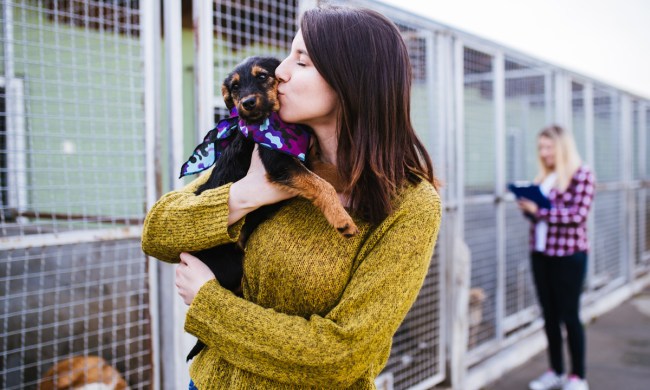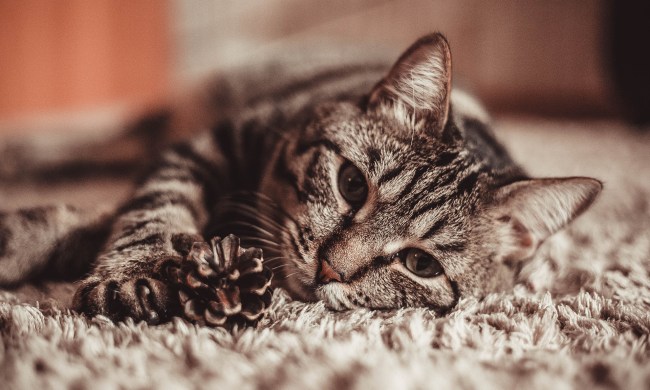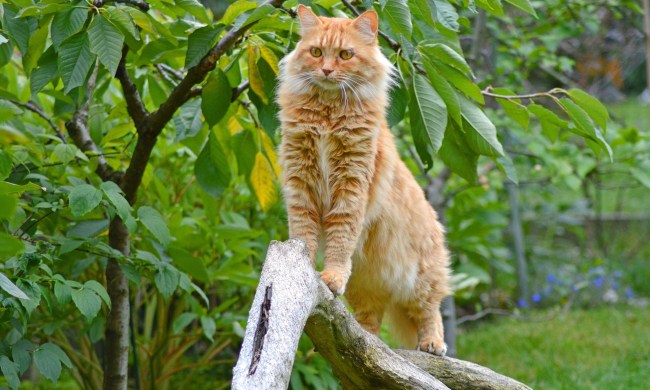Nothing is cuter than a puppy, but even the most adorable puppy can be an unholy terror in an apartment. If you’re planning to make your apartment a new puppy’s forever home, you can help minimize the damage your furry new roommate can cause. Here are a few simple steps you can take to puppy-proof your apartment.
Keep electrical cords, phone and laptop chargers, and any potentially dangerous items out of your puppy’s reach
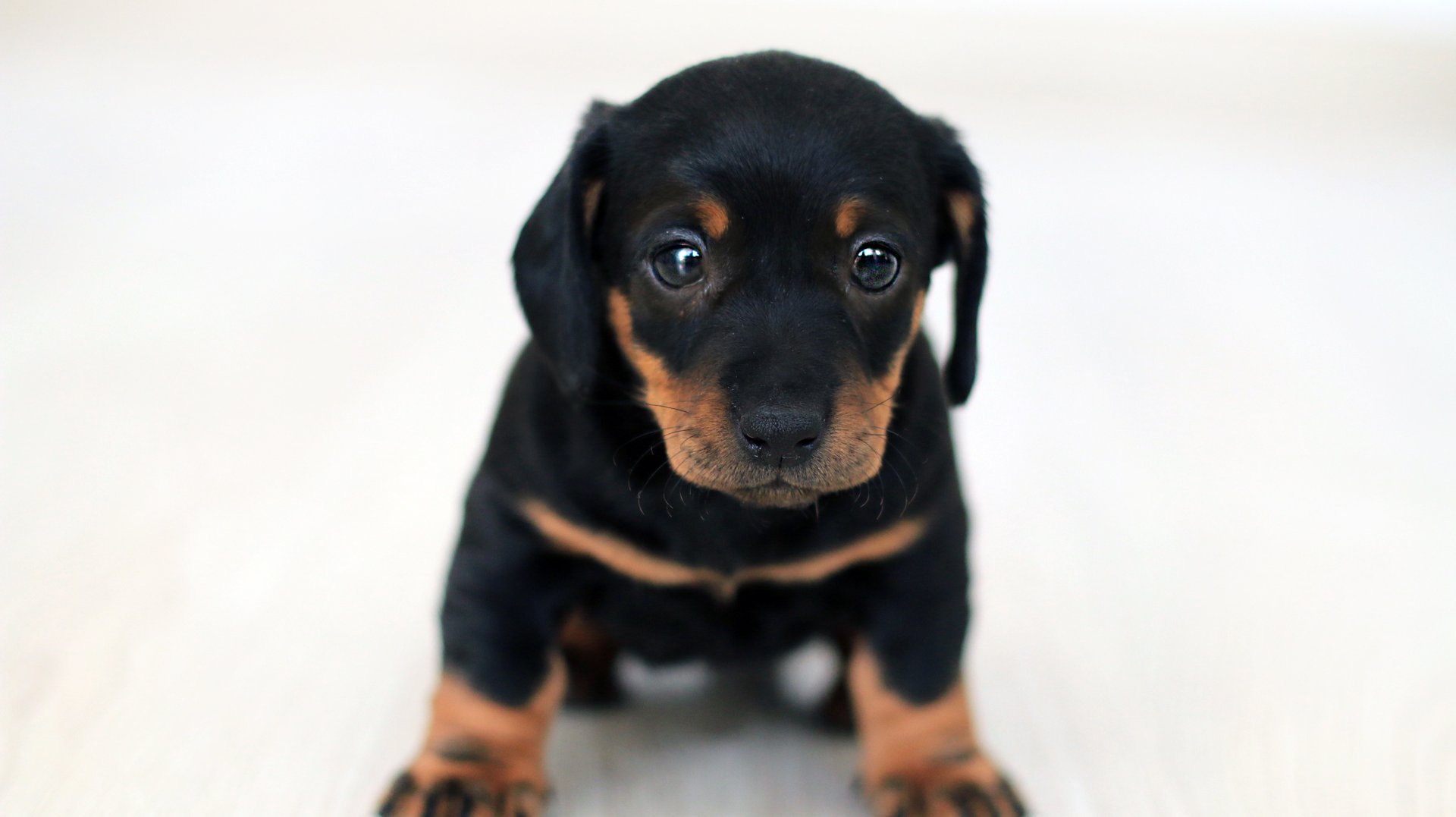
Anything that can break into tiny pieces your puppy could choke on are potential hazards, so keep them in a storage bin out of your puppy’s reach. Another thing to keep in mind are houseplants, as many are toxic to your puppy. Jade plants, aloe vera, and elephant ear plants are all beautiful, but they’re also poisonous to your pooch.
If you don’t want to give up houseplants, money trees, ferns, bamboo, and Areca and ponytail palms are all puppy-safe options.
Try confining your puppy to one area
Keeping your puppy out of trouble while you’re away sounds like a daunting task, but there’s an easy, affordable fix. You can buy an inexpensive baby gate and keep your puppy in your bathroom or kitchen while you’re at work. Because most kitchens and bathrooms have tile or vinyl flooring, cleaning up any messes when you get home is a breeze. Just make sure your puppy can’t open any cabinets before you leave them alone.
Replace tempting objects with your puppy’s favorite toys
Puppies love to play and chew, but they’ll be much less likely to chew on your furniture and shoes if they have a plethora of toys at their disposal. If your puppy is teething, try putting their favorite chew toys in the freezer before you leave for work. The cooling effect will help soothe your puppy’s irritated gums, and they’ll be distracted enough by the presence of their toys to leave your furniture alone while you’re gone.
Because your clothes smell like you, your puppy may be particularly attracted to your dirty laundry. Make sure to pick up your laundry off the floor and place it securely in a basket so your puppy doesn’t shred your favorite socks. It’s much better for your clothes, and it’s much safer for your puppy to chew on toys designed for dogs, as there’s an increased risk of choking if your puppy swallows a piece of fabric.
Don’t leave foods or medicines out while your puppy is unattended
If it smells appetizing, it should be put away when your puppy is home alone. This is especially true of foods containing known toxins like chocolate, caffeine, garlic, onions, and raisins. High-fat foods like nuts and seeds can also cause digestive issues, so make sure they’re properly sealed and stored in an out-of-reach location.
You should also take special precautions to make sure all of your vitamins and medications are stored in a drawer or cabinet where your puppy can’t reach them. If you leave your puppy in your bathroom while you’re away, be sure to put up your skincare items so your puppy doesn’t pull them down off the bathroom counter.
Deter your puppy from chewing on things with an anti-chewing spray
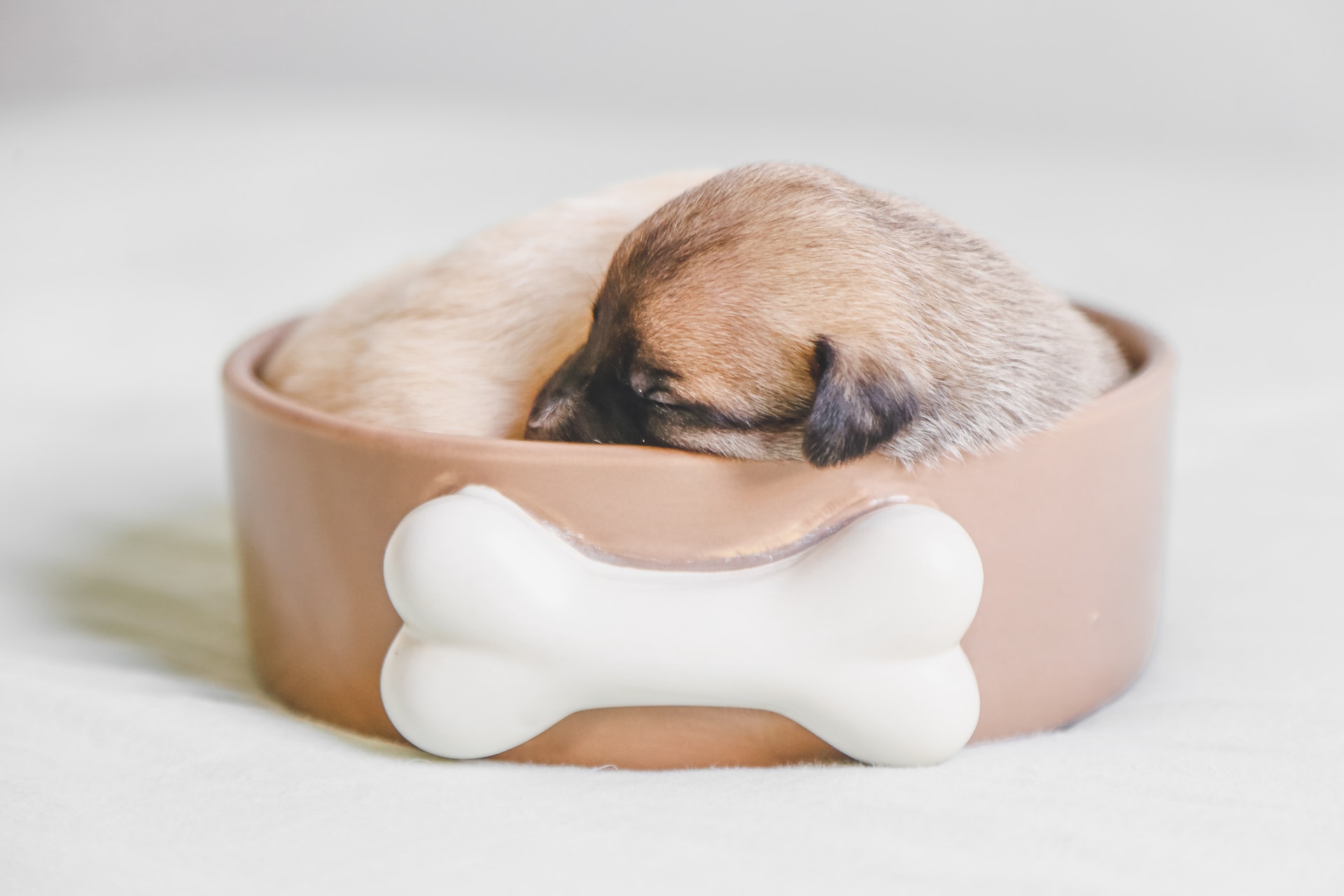
If your dog loves to chew on your sofa or your favorite pair of sneakers, look for a fabric-safe option that won’t leave stains. Using a no-chew spray is a safe, effective way to train your puppy not to chew on things from the get-go.
Sharing your apartment with a new puppy is a joy, but it can also test your patience. If you want to live in harmony with the world’s most precious roommate, puppy-proofing your apartment will help keep your belongings safe and free of bite marks — and it will help keep your pooch out of trouble, too.

